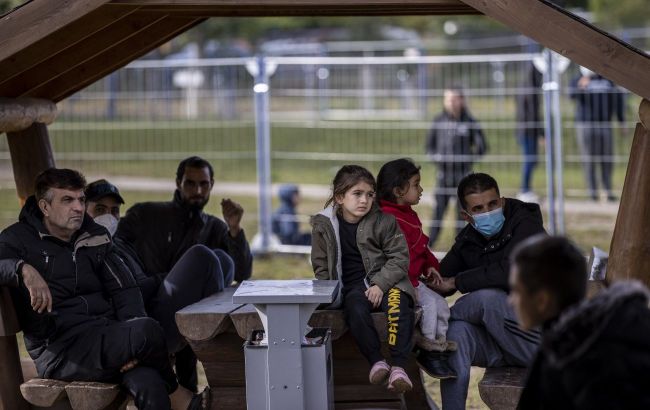Germany demands tighter controls on flow of young Ukrainians
 Germany calls for limiting the influx of young Ukrainians (Illustrative photo: Getty Images)
Germany calls for limiting the influx of young Ukrainians (Illustrative photo: Getty Images)
In Germany, political debates are intensifying over the influx of young Ukrainians arriving following the easing of travel restrictions from Ukraine, according to the German Bild.
After Kyiv lifted the travel ban at the end of August for men aged 18 to 22, Germany has seen a sharp increase in asylum applications - from around 100 to 1,000 per week.
This surge has raised concerns among regional authorities, particularly in Bavaria, where calls for stricter migration policies are growing.
According to local media, regional authorities believe the current situation requires immediate intervention from Berlin and the European Union to compel Ukraine to change its exit rules for men of conscription age.
Otherwise, Bavarian officials warn, there is an increasing risk that able-bodied citizens will leave the country instead of participating in its defense.
Bavaria’s political demands
Bavarian authorities are calling for stricter controls on the arrival of young Ukrainians and a reduction in social benefits provided to conscription-age citizens.
Regional representatives argue that Germany should continue supporting Ukraine with weapons and humanitarian aid, but also expect men to defend their country.
Additionally, proposals include increasing the number of asylum rejections and establishing dedicated deportation centers.
These measures are part of a broader domestic debate in Germany about redistributing the burden on the social welfare system.
Ukrainians in Germany: Statistics and plans
Since the start of Russia’s full-scale invasion, over 1.2 million Ukrainians have arrived in Germany. About half of them are considered of working age, but only some have found employment.
Ukrainian refugees receive immediate civil assistance, while other migrants only gain access after their asylum applications are processed.
The coalition agreement of the German federal government foresees a change to this system: newly arrived Ukrainians would receive only basic asylum support—€441 instead of €563.
However, implementation of this decision is currently on hold due to disagreements between government departments, primarily within the Ministry of the Interior.
While disputes continue in Berlin, representatives of the CDU and CSU are calling for the removal of existing privileges for Ukrainians. Bavarian politicians, in particular, insist on revising European directives that allow Ukrainian citizens to remain freely in the EU.
The EU has acknowledged that the idea of creating a fully protected drone wall along the eastern border will remain unfeasible. Experts consider the project overly ambitious and resource-intensive, recommending that EU countries not place excessive reliance on the initiative.
Additionally, hundreds of individuals in Germany have been found to hold temporary protection status while claiming to be Ukrainian citizens, but checks revealed that they possess passports from other countries.

